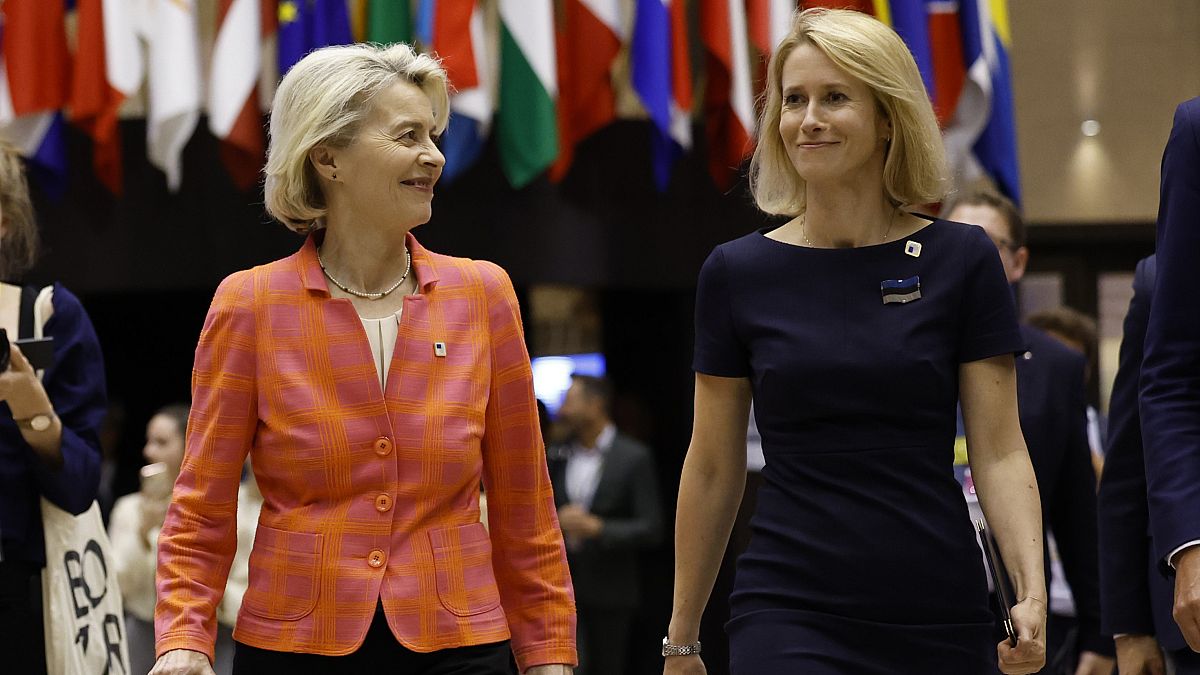After a European Council meeting that produced surprises, European leaders have agreed on three names to fill the top jobs in the EU for the next five years. Ursula von der Leyen will be the president of the European Commission, António Costa as president of the European Council, and Kaja Kallas as the High Representative for Foreign Affairs and Security Policy. António Costa’s election by the Council is final and he will take over from the current president Charles Michel on 1 December. However, Kallas and Von der Leyen still need the endorsement of the European Parliament before being officially appointed. Kallas will appear before the Parliament’s foreign affairs committee in September for a vote that will confirm her as the EU’s High Representative for Foreign Affairs and Security Policy. Von der Leyen will also face a vote in Parliament in July to resume her position as head of the European Commission, needing an absolute majority of votes to carry on.
The approval of the candidates by the European Council is just the first step in the process of finalizing the composition of the EU’s leadership. Von der Leyen and Kallas need to secure the support of the European Parliament in upcoming votes to officially assume their positions. Von der Leyen must secure an absolute majority of the chamber’s votes in the plenary session in July. To ensure her appointment, she is reaching out to different political groups, including the Greens, and working intensively with national delegations for support. The Greens have expressed willingness to negotiate, but have set clear conditions before entering any political pact. Other political parties also have requirements, with some refusing to enter into coalition agreements with certain groups, setting the stage for complex negotiations and potential alliances in the upcoming votes.
If Ursula von der Leyen receives the support of the Parliament in July, she will begin working on the composition of the next European Commission. Some countries have already put forward their candidates for posts in the Commission, with President Macron expressing his wish to reappoint current French Commissioner Thierry Breton. Ireland has announced its intention to appoint finance minister Michael McGrath to replace Commissioner Mairead McGuinness, while Lithuania has named Gabrielius Landsbergis for the position. Von der Leyen had asked member states to nominate a man and a woman for the positions to ensure a gender-balanced commission, but so far, no country has done so. The final appointments will not be made until September, once the College of Commissioners is selected and each nominated candidate receives the support of the European Parliament to take office.
The road to finalizing the EU’s top jobs involves complex negotiations and alliances to secure the necessary votes for the candidates. Von der Leyen and Kallas are still in the process of seeking support from the European Parliament to officially assume their roles. The upcoming votes in Parliament will determine whether they can proceed to lead the European Commission and the High Representative for Foreign Affairs and Security Policy, respectively. With the leadership of the EU for the next five years at stake, the discussions and negotiations among political groups and delegations will play a crucial role in shaping the future direction of the European Union.
As the three candidates nominated for top EU positions await the results of the upcoming votes in the European Parliament, the EU is on the brink of a new era with a fresh leadership team. The new leadership will face challenges such as Brexit, the rise of populism, and the need for unity among member states to address pressing issues. The successful confirmation of Ursula von der Leyen and Kaja Kallas will set the stage for their tenure and the direction they will take in guiding the EU forward. With the support of various political groups and national delegations, the candidates are working to secure the necessary votes to advance their roles and responsibilities in shaping the future of the European Union.










